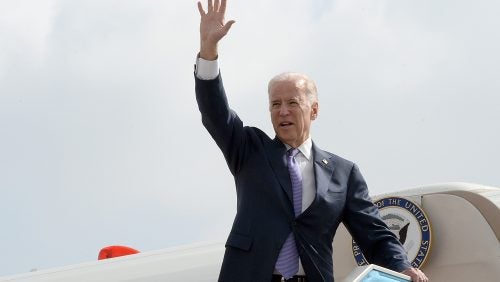National Security as National Competitiveness: Assessing President Biden’s Trade Strategy
March 8, 2021 by Digital Editor

By: Serena Seaman
For most of the 73 years since the General Agreement on Tariffs and Trade (GATT), the first multinational attempt to regulate trade, was ratified, international trade policy flourished under a Cordell Hull-ian theory of economic interdependence. This theory posits that, because international trade can increase wealth worldwide, conflicts would be discouraged because they would disrupt the mutually beneficial interdependence. Over the last decade, however, competing theories have overtaken this guiding principle. Driven by a shift towards populist and nationalist politics following the 2008 Global Financial Crisis and the rise of China, trade policy in the United States has focused less on maximizing trade and more on keeping jobs within the country. This change in focus reflects not only a general disillusionment with the economic benefits of trade, but a reframing of the national security implications of interdependence. Whereas Cordell Hull-ian theory posits that interdependence discourages conflicts and promotes national security, national security has been reframed as zero-sum: it is better for a nation to be strong than to have stronger friends.
The shifted mentality seems here to stay under the Biden administration- with a twist. White House Press Secretary Jen Psaki and National Security Advisor Jake Sullivan stated in a recent press briefing that President Biden’s trade policy is “about thinking about national security as national competitiveness… [s]o Build Back Better isn’t just about economics; it’s about national security as well.” President Biden’s trade policy is directed at stronger domestic investment rather than building a stronger global economy. In line with the shift away from the Cordell Hull-ian consensus, Biden equates a stronger domestic economy with a more secure America, even if the stronger America comes at the expense of its trading partners. This mentality is evident in the President’s trade actions thus far. In his first trade move, Biden reimposed a 10% tariff on steel from the United Arab Emirates (a tariff that Trump removed one day before leaving office), stating that “[i]n my view, the available evidence indicates that imports from the UAE may still displace domestic production, and thereby threaten to impair our national security.”
A shift towards protectionism in the name of national security is not only an American phenomenon. In one example, over the last decade, a previously unused GATT article has become increasingly important as countries have begun to redefine trade policy through the lens of national security. This article, GATT Article XXI, allows a contracting party to not abide by articles it considers contrary to its national security. If the conditions of Article XXI are satisfied, it becomes an opt-out from all other agreed upon rules of trade. In the first 65 years of the GATT’s existence, Article XXI was almost never invoked and effectively forgotten, with countries preferring to settle matters out of court. International Trade Law, the textbook used in the current running of the International Trade course at Georgetown Law, buries its one mention of the article in a footnote. Despite this historical irrelevance, Article XXI has come to the forefront of international trade news as several countries, including Russia, Saudi Arabia, and the U.S. have attempted to invoke the exception.
Despite the general shift towards protectionism, the Biden administration, perhaps incongruously, extolls the value of diplomacy. While the administration’s focus for international trade is national security, the administration’s focus for national security is strengthening America’s ties with the world. In the same briefing in which Psaki and Sullivan defined “national security as national competitiveness,” they emphasized that Biden “wants to send a clear message that our national security strategy will lead with diplomacy.” Similarly, Biden has promised that the Defense and State Departments will work much more closely than during the last presidency, and his choice for CIA director is a diplomat.
It seems the two competing impulses are at odds. Reimposing tariffs and invoking the national security exception for the purpose of strengthening our domestic economy, perhaps at the expense of the global trading system, is contrary to a diplomatic approach to national security. It will be interesting to see how President Biden approaches these issues throughout his presidency.
Serena Seaman is a 2L at Georgetown Law and an incoming Senior Citations Editor of the Georgetown Journal of International Law. Prior to law school, she worked as a paralegal at the global corporate immigration firm Fragomen, Del Rey, Bernsen & Loewy, LLP. She graduated with honors from Trinity College in 2017, where she majored in International Studies with a focus in Political Science.

